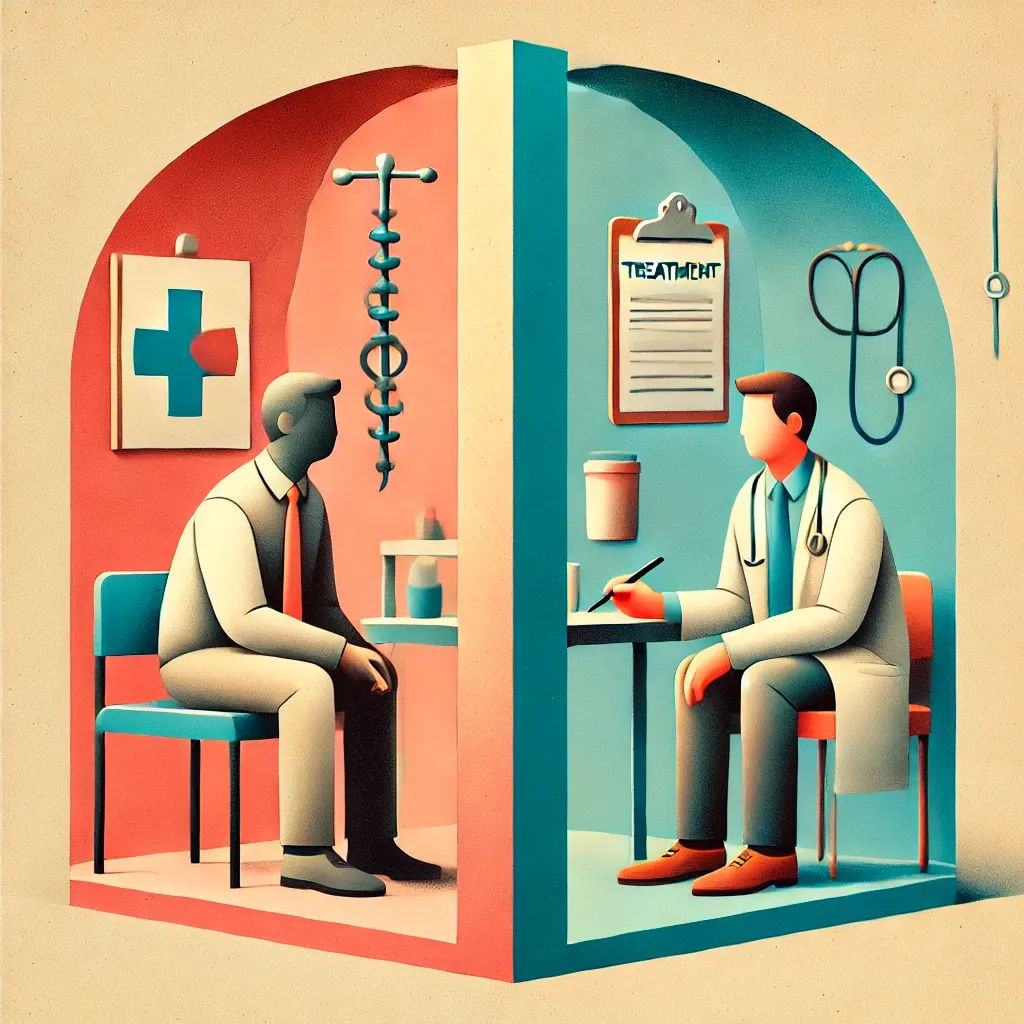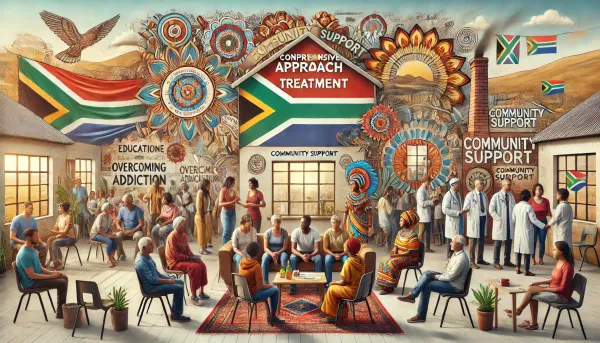Reconsidering Patient-Centered Approaches in Addiction Treatment: Challenging Professional-Centered Models

Substance use and addiction are complex phenomena shaped by a myriad of biological, psychological, and social factors. People who use alcohol and drugs come from diverse backgrounds, and their reasons for starting and continuing use vary widely. Some individuals experiment with substances and are struck by the profound effects, unable to forget the initial sensation. For others, the drug becomes a source of gratification, a means of seeking pleasure or relief. Over time, however, this gratification can lead to tolerance, where the individual must consume increasingly larger doses to achieve the same effect. For some, this culminates in a cycle of dependence, where they find themselves chasing a feeling that is ultimately elusive, leading to loss of control and even suicidal ideation.
In addressing addiction, harm reduction has emerged as a public health solution aimed at minimizing the immediate dangers associated with drug use. This approach—focusing on preventing overdose, transmission of diseases like HIV, and other acute risks—has merit in keeping people alive. However, it often overlooks the deeper psychological, social, and emotional needs of the person who uses substances. Authentic recovery goes beyond mere survival; it requires a holistic approach that acknowledges the individual's potential to heal, develop emotional regulation, and repair broken relationships.
The Problem with Professional-Centered Approaches
Too often, addiction treatment is dominated by interventions that are professional-centered rather than patient-centered. In such systems, patients are seen through the lens of disease, categorized and labeled by their symptoms, and then funneled into predefined treatment models, be they harm reduction, 12-step programs, or psychiatric interventions. But addiction is not simply a matter of symptom management. It is a disorder of the whole person—body, mind, and spirit—often rooted in trauma, emotional dysregulation, and a deficit in intimacy skills.
By focusing on the immediate medical or public health aspects, we fail to address the underlying psychosocial deficits that many individuals use substances to self-medicate. People who use substances frequently suffer from trauma or emotional pain, and their drug use becomes a way to generate feelings they cannot produce on their own. A recovery process that ignores these deeper issues risks falling short of real healing. Addictionologists—specialists with deep knowledge of addiction's biological, psychological, and social dimensions—are uniquely positioned to offer comprehensive assessments and treatment plans. However, the current system often limits them, pushing addiction into psychiatric diagnoses that strip away the personhood of the patient.
This approach fails to consider the patient's potential for full recovery, focusing instead on harm prevention or symptom management. But true recovery—one that includes emotional growth, trauma resolution, and the mending of family bonds—requires more than just keeping someone alive or preventing disease transmission. It requires a commitment to patient-centered care that addresses the individual’s unique circumstances, values, and goals.
Harm Reduction vs. Authentic Recovery
Harm reduction can save lives, and it has its place in addiction care. Yet, it should not be seen as the default or the only path for people who use substances. Harm reduction measures, such as needle exchanges or supervised injection sites, focus on reducing the risks associated with drug use. While these are important, they often neglect the opportunity for individuals to reclaim their lives fully. Recovery is not simply the absence of harm; it is the restoration of agency, emotional regulation, and the ability to form meaningful relationships.
Addiction is a disorder of choice—specifically, the impaired ability to make healthy choices in the face of strong emotional and physical cravings. Recovery must include the restoration of this ability, which involves developing emotional intelligence, improving interpersonal relationships, and working through the trauma that often lies at the root of substance use. Harm reduction alone does not address these deeper issues, and in some cases, it can even reinforce the notion that people who use drugs are incapable of full recovery, relegating them to a life of managed risk rather than genuine healing.
HIV Sector and Addiction: A Missed Opportunity for Holistic Care
Another complicating factor is the overlap between the addiction treatment sector and the HIV prevention sector. The HIV sector is often flush with funds and resources, but it tends to view people who use drugs primarily as vectors for disease transmission. This view strips away the individuality of the person and focuses only on the risk they pose to public health. In this context, the person who uses substances is not seen as someone with a primary illness, but rather as a means of spreading HIV. This reductionist view fails to recognize the complexity of addiction and the potential for full recovery.
What is missing in this equation is a holistic approach that sees the person who uses substances as more than just a vector for disease. They are individuals with their own struggles, traumas, and potential for recovery. If the HIV sector worked more closely with authentic recovery centers—places that focus on healing the whole person—we could create more comprehensive solutions that address both addiction and disease transmission. But for this to happen, there needs to be a recognition that addiction treatment is about more than just harm prevention—it is about restoring a person’s ability to live a full and meaningful life.
The Need for Specialized Training in Addiction Medicine
One of the major barriers to achieving patient-centered care in addiction treatment is the lack of specialized training in addiction medicine. Currently, addiction is often treated as a subset of psychiatry, which limits the understanding of its unique challenges and opportunities for recovery. Addiction is not simply a psychiatric disorder, and reducing it to one diminishes the experience and needs of the individual who uses substances. Addictionologists need proper training and incentives to treat addiction as its own specialty, with a focus on the whole person rather than just managing symptoms or preventing harm.
The problem lies in the fact that addiction medicine has not yet achieved parity with other medical specialties. The lack of proper incentive to train professionals in addictionology has resulted in a workforce that is ill-equipped to provide the comprehensive, patient-centered care that is needed. This has led to a situation where people who use substances are often treated with cookie-cutter approaches, rather than personalized care plans that take into account their unique needs, histories, and potential for recovery.
Conclusion
In conclusion, addiction treatment must move away from professional-centered models that focus solely on harm prevention and symptom management. While harm reduction has its place, it is not the whole solution. Authentic recovery requires a holistic, patient-centered approach that addresses the individual’s emotional, social, and psychological needs. It is time to challenge the status quo and demand that addiction be treated as a comprehensive, multifaceted disorder that requires specialized care. Addictionologists must be trained in all paradigms of care and have the skill set to match thecpatient to a suitable treatment plan which is regularly reviewed depending on patients stage of teadiness for change.This care should be delivered by trained addictionologists who understand the complexity of the disease and who are committed to helping their patients not just survive, but thrive.



